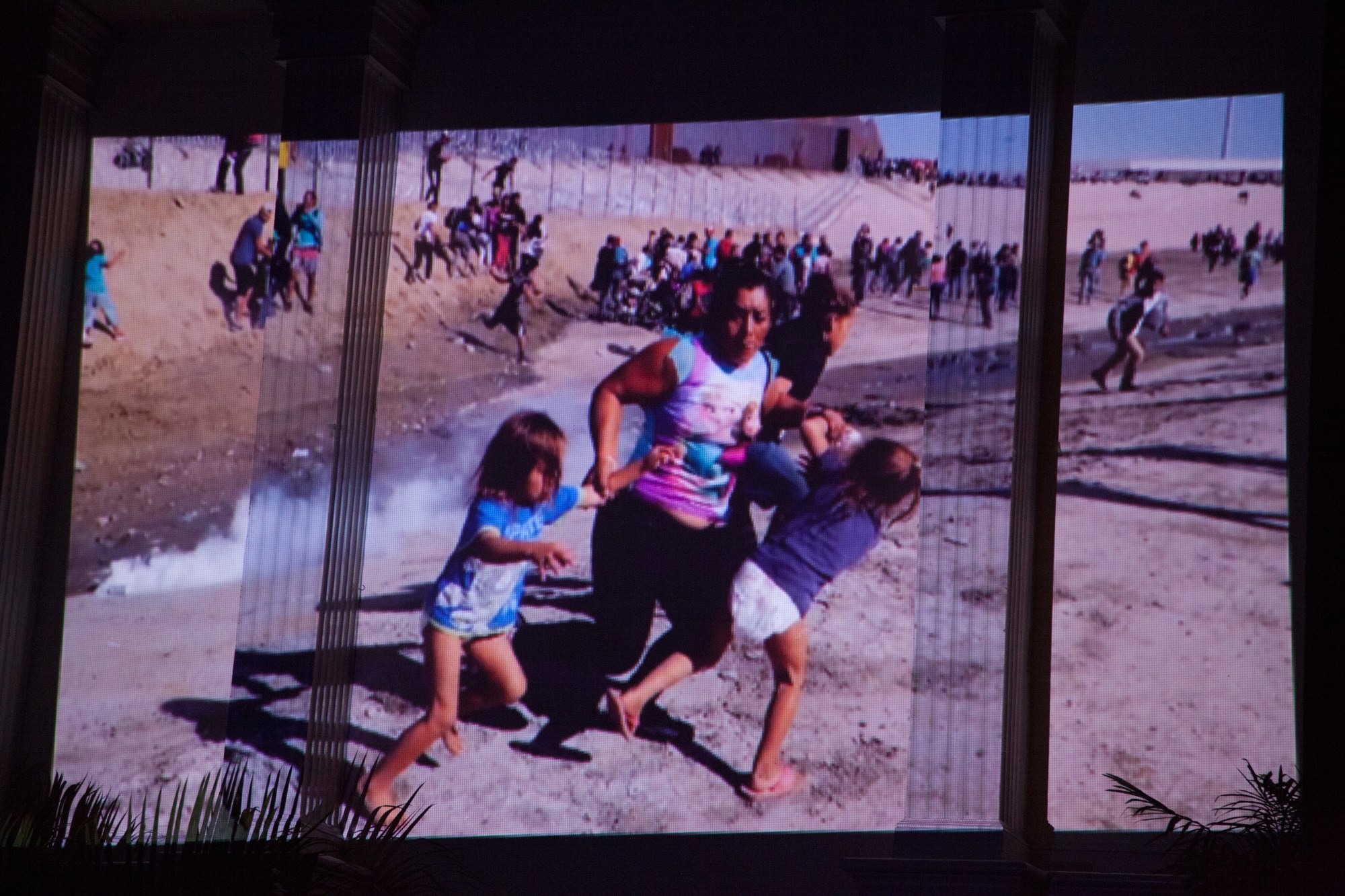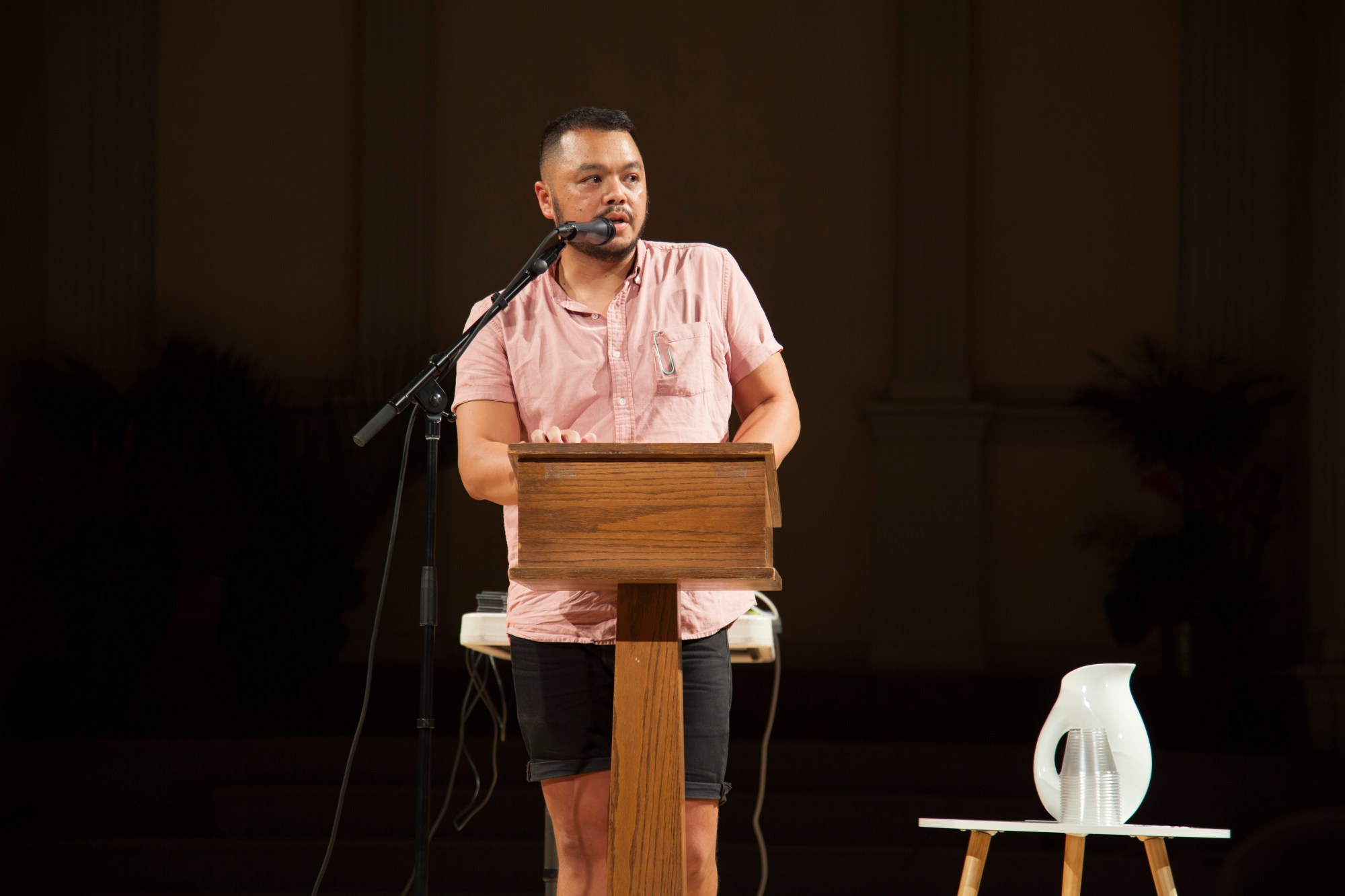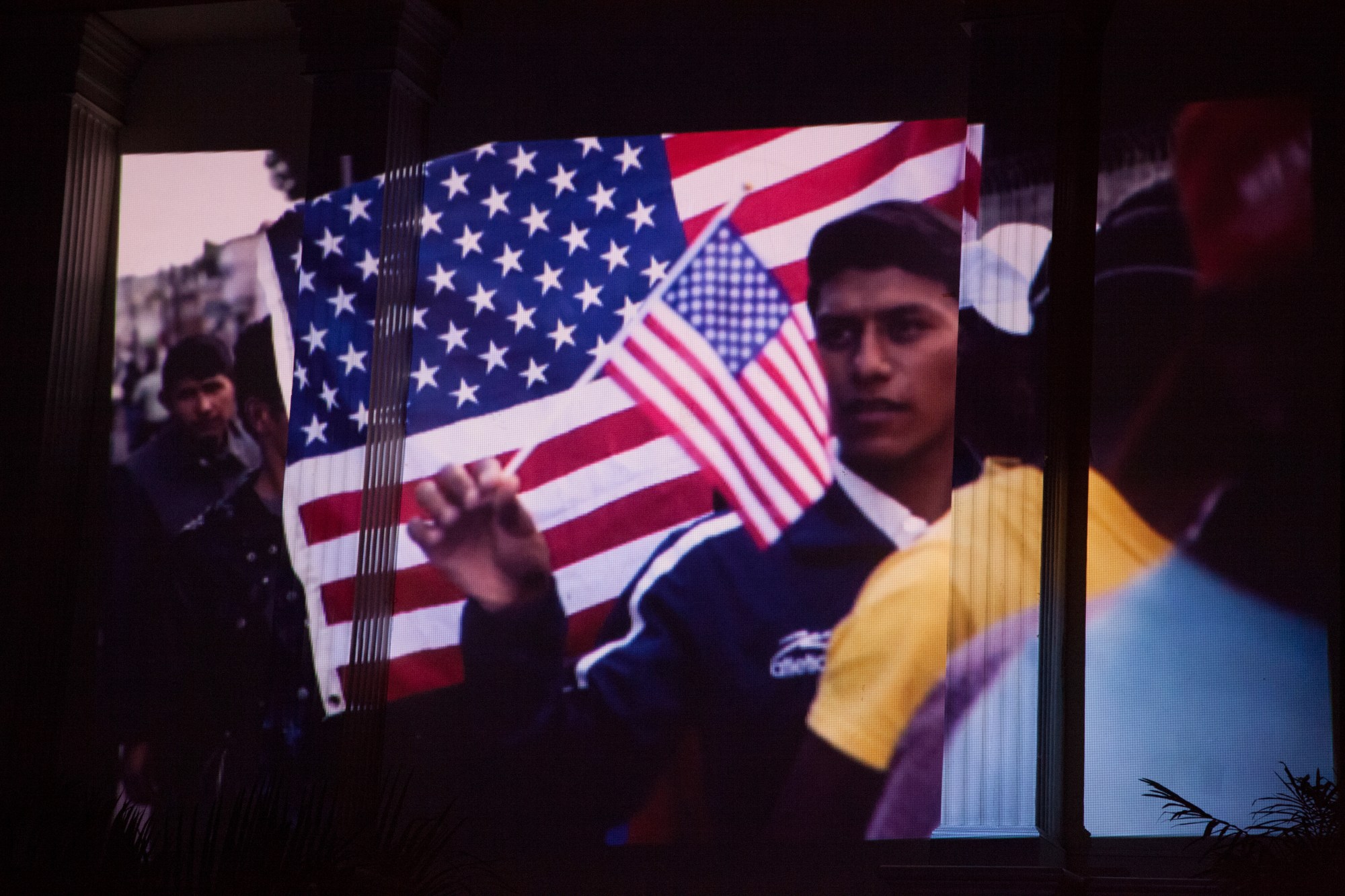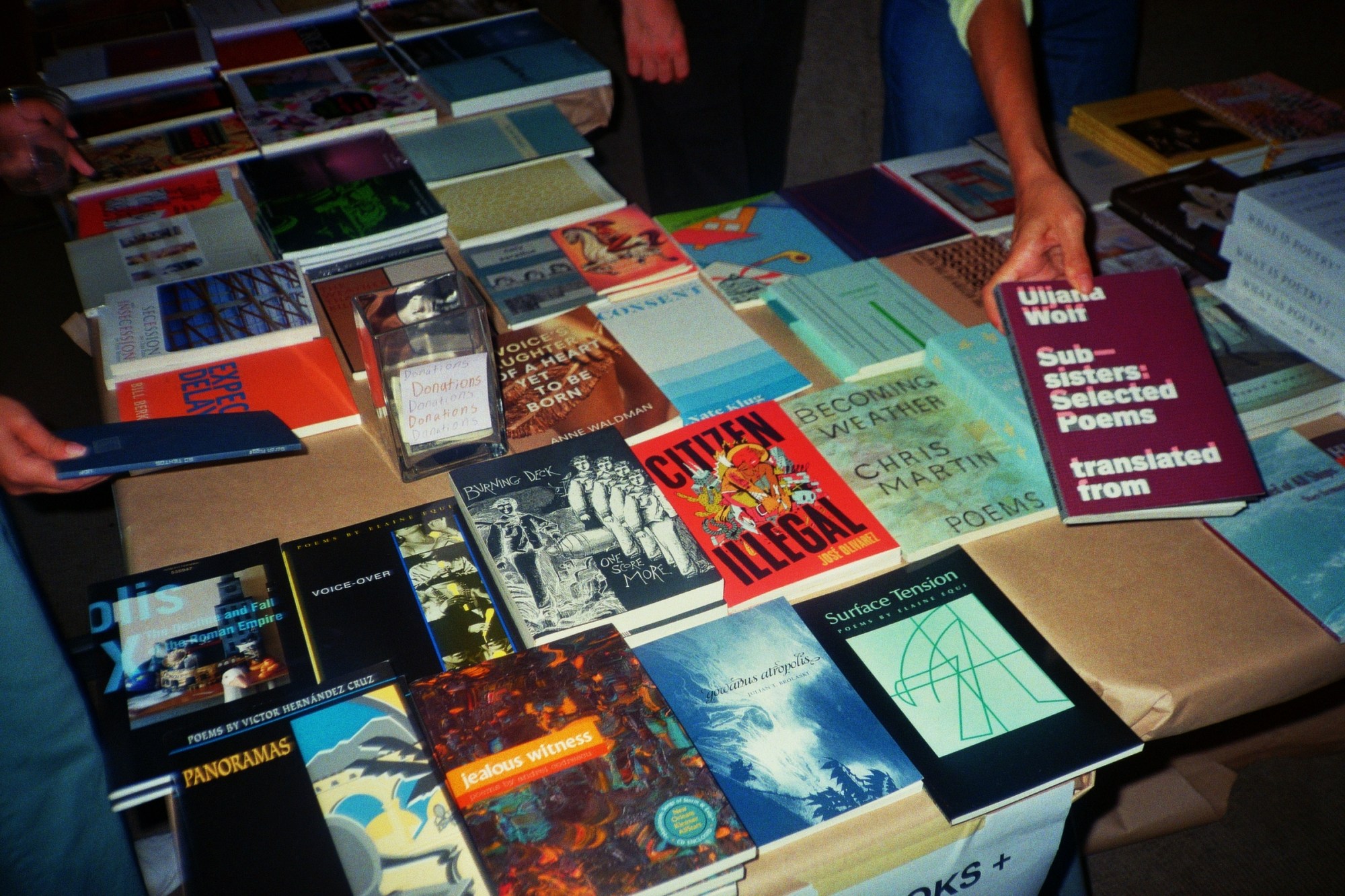Poetry has a long history of dissent, and literary activist collective Writers for Migrant Justice continue to stoke that age-old fire. The group was founded earlier this year by poets Anni Liu, Javier Zamora, Jan-Henry Gray, and Christopher Soto in response to the increased hostility towards migrants in the United States, undocumented and otherwise, under the Trump administration.
On September 4, the collective held a series of protest readings across the United States that doubled as a fundraiser for Immigrant Families Together, a national nonprofit putting down bonds and helping migrants in detention with legal assistance and post-release aid. Spanning over 45 cities, the readings raised over $5000 on their GoFundMe page before the night had begun—by the end of the evening, they far-exceeded their initial goal and raised nearly $40K with additional donations made directly to the nonprofit and the initial online fundraiser.
The organizers, who are of mixed documentation status, are linked by way of the Undocupoets campaign. Co-founded in 2015 by Soto and Zamora with Mexican-American poet and activist Marcelo Hernandez Zamora, the campaign raises up the work of undocumented poets and creates an awareness of the challenges they face in the literary community and at large—Liu and Gray were a part of its inaugural class of fellows.

“The idea [for Writers For Migrant Justice] literally happened on the dance floor of Cumbiatón, a queer Cumbia party in LA hosted by immigrant organizer Julio Salgado,” Zamora said. “We were inspired by the event so much that we wanted to do something similar regarding this administration’s approach to immigrants at the border.”
The air inside St. Mark’s Church on the Bowery, where the New York reading was held, was thick with solidarity, revolutionary spirit, and the smell of empanadas and pierogies wafting in from the small stand outside set up for the event. The reading kicked off with Chicago-based poet and Citizen Illegal author Jose Guadalupe Olivares reminding those present that “part of the job of this administration is to make us feel powerless, and this event is a reminder that we are not.”
Later in the night, Zamora read a powerful litany against the border wall, inspired by a song by merengue legend Kinito Mendez. Before introducing the rest of the readers, he led the crowd in a rousing chant of “Fuck Donald Trump!”
“Many of the hosts and organizers across the country have deep relationships to the people and communities most affected by the current administration’s anti-migrant, racist laws and policies,” said Gray, one of the national organizers. “There are people detained, harmed, silenced, and disappeared who cannot speak for themselves, and it’s incredibly powerful for artists in this country to come together and speak up.”
“This administration is continuing the work of previous administrations regardless of political party—this is how this government treats us,” Zamora explained. “For me, poetry has always been the vanguard of any movement. In El Salvador and in most nations around the world, it’s the poets who usually are the first to speak out against injustices, and this reading series follows that same sentiment.”

The New York Reading featured a wide range of readers from seasoned luminaries Terrance Hayes and Mahogany Browne to rising voices like closing poet Melissa Lozada-Oliva. The reading, organized in collaboration with book publishing collective Latinx in Publishing, was significant for its setting, a hub of poetic rebellion dating back to the East Village’s heyday and the home of the famous St. Mark’s Poetry Project.
“The project has a very real history of connecting with this sort of movement building work,” said The Poetry Project’s Executive Director Kyle Dacuyan. “Poetry provides a disruption to language in order to imagine a different action, structure, and mobilization to shake us awake of regular speaking and listening—it resets what the units of conversation are. I hope people leave here feeling energized that this work is possible. ”
Outside of major cities where these kind of events are easier to find and crowds are almost assured, organizers had to take a grassroots approach for getting people together. “I reached out to fellow poet Iliana Rocha and asked her if she wanted to co-host the Oklahoma City event—she lives about an hour away from me,” said Janine Joseph, the coordinator for the Oklahoma City reading. “It’s all about reaching out and creating communities, right? We met some of our readers in person for the very first time that night. I’ll know them now always.”
The idea of a community for migrants has been continuously challenged by this administration, which continues to separate families and isolate vulnerable people for weeks at a time. Writers For Migrant Justice was born of a desire to rally around those broken communities, to provide a safety net of solidarity.
“I think in the best readings and protests there is a similar feeling of connection that makes tangible the idea of community,” said national organizer Anni Liu. “By bringing together poetry and protest, we are able to reflect and act, and that is what makes these two things so powerful together.”
All of this said, the core of the collective’s work is rooted in two important truths: the long-running and important ideal of art as an effective form of organized resistance and the passion to mobilize and defend those most in need of protection.

“One of my favorite poets, Roque Dalton, was fighting and writing during the Civil War in El Salvador—he ultimately gave his life fighting for the poor in the country,” said head organizer Chirstopher Soto. “I knew I needed to speak up, and so did Javier Zamora, Jan-Henry Gray, and Anni Liu. We organize because we believe in our community’s self-determination, we demand that our people be treated with dignity, and because we are willing to give of ourselves in order to work towards a greater collective good.”
Learn more about Writers For Migrant Justice and donate to the collective’s campaign here.
